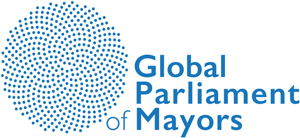By IVO DAALDER

For the past 30 years, international politics have been shaped by two fundamental realities: America’s unrivaled power and the forces of globalization. While already waning for some time, both realities are threatened with death blows from the COVID-19 pandemic.
America emerged from the Cold War in 1990 as the sole remaining superpower. Its military was larger than that of the next 10 countries combined, and it was the only one with true global reach. Its economy accounted for more than a quarter of global GDP, even though Americans represented less than 5% of the world’s population. And politically, the United States was the “indispensable nation” — a guarantor of global stability and the leader that drove multilateral institutions and multinational actions.
Along with America’s unrivaled power, globalization helped shape global politics over the past 30 years. The increasingly voluminous and speedy transfers of people, goods, money and ideas around the globe benefited people across the globe. Global poverty declined from nearly 36% in 1990 to less than 10% today. The number of democracies in the world nearly doubled. And the internet and global spread of cellular networks created new cross-border communities, even a Facebook Nation that today encompasses one-third of humanity.
But the age of global politics that emerged in the wake of the Cold War has been coming to an end. While America unquestionably remains the most powerful country in the world, other nations have risen to challenge its global power and influence — none more so than China, whose rapid rise was greatly aided by globalization. America’s decadeslong wars in Afghanistan and the Middle East have left many Americans exhausted. And President Donald Trump’s “America first” approach entailed a deliberate abdication of the global leadership role America pursued for decades.
Globalization, too, had its downsides. The world’s very interconnectedness meant that local issues could rapidly turn into global problems. The financial crises in 1998 and 2008 reverberated around the globe, cutting jobs and growth. Terrorists plotted attacks in Kabul, trained in Hamburg and struck in New York. AIDS/HIV infected millions in every corner of the world. Computer hackers in St. Petersburg disrupted elections in Britain, France and the United States. Exploding greenhouse gas emissions from America, Europe and China melted ice caps in Greenland and Antarctica.
The coronavirus, which in just three months has infected 1.5 million people and killed nearly 100,000, has accelerated both of these trends.
America has been noticeably absent from the global response to the pandemic. Unlike in previous global crises, Washington did not convene international leaders nor marshal international institutions toward common action. Instead, it has blamed the outbreak on China and Europe, shunned working with others to devise a common response and even sought to seize medical shipments destined for other countries.
The impact of the pandemic has been as dramatic when it comes to stalling the movement of people and goods across borders. Whereas just a few months ago millions of people traveled around the world for business and pleasure, cross-border travel has essentially come to a halt. Today, 90% of people in the world live in countries that have imposed travel restrictions and nearly 40% live in places that have barred all entry to foreigners.
As the global economy has come to a screeching halt, trade in goods and services has begun to decline precipitously. The World Trade Organization now estimates that overall trade this year will decline by as much as a third compared to last year.
More fundamentally, however, some 70 countries are now restricting exports of medical goods and many are outbidding each other in the global marketplace to secure urgent supplies. These beggar-thy-neighbor policies are increasing prices, reducing supplies and souring relations even among close trading partners and allies.
The inward focus of all nations is understandable given the sudden emergence of this once-in-a-lifetime viral threat. Clearly, the coronavirus has exposed the danger of relying on just-in-time supply chains, single sourcing of medical and other critical products, and markets that can be manipulated by authoritarian leaders.
But the answer is hardly a return to autarky, which will make every nation poorer. Globalization isn’t just a policy preference; it is a reality of our world. The question is how to manage that reality in ways that enhance, rather than degrade, people’s security, prosperity and health.
The answer lies in more, not less, international cooperation. That’s why central bankers around the world have worked together to stabilize financial markets. For they know that national financial stability requires global financial stability. And it is why scientists around the world are working together to find a vaccine for COVID-19. For they, too, know there is no national cure for this pandemic. There’s only a global cure.
Ivo Daalder is president of the Chicago Council on Global Affairs and a former U.S. ambassador to NATO.
Original source: https://www.chicagotribune.com/opinion/commentary/ct-opinion-coronavirus-globalization-america-superpower-daalder-20200409-kvhof5y5nnayjljxn3byvbbuli-story.html
